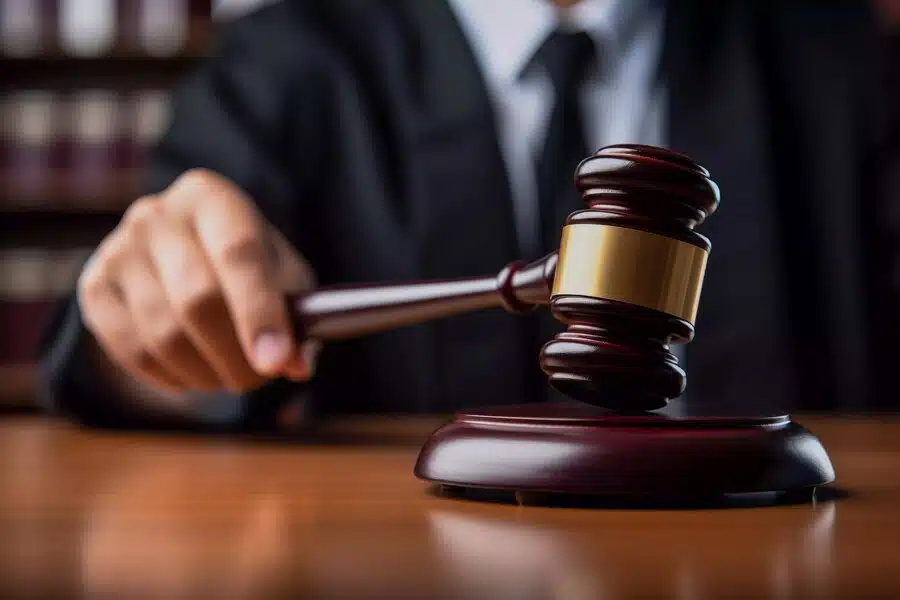Legal Remedies Are Available Under Civil Law? Civil law governs the relationships between individuals and entities, providing a framework for resolving disputes and seeking justice for civil wrongs. In legal contexts, the term “remedies” refers to the solutions or actions available to address a legal wrong or injury. This article explores the various legal remedies available under civil law, delving into their principles, types, processes, and influencing factors.
Understanding Civil Law
Civil law encompasses a broad range of legal matters, including contracts, property disputes, torts, family law, and more. It differs from criminal law, which deals with offenses against the state. In civil law, the primary focus is on resolving disputes between private parties, such as individuals or organizations, through legal proceedings. Civil law aims to compensate the injured party, restore them to their original position, or prevent future harm.
Principles of Legal Remedies

Legal remedies in civil law are guided by several fundamental principles:
1. Compensation Principle: This principle aims to compensate the injured party for the losses suffered as a result of the defendant’s actions or negligence. Compensation may include economic damages (e.g., medical expenses, lost wages), non-economic damages (e.g., pain and suffering), and punitive damages (designed to punish the wrongdoer).
2. Restitution Principle: Restitution seeks to restore the injured party to the position they were in before the wrongful act occurred. It may involve returning property, cancelling contracts, or disgorging ill-gotten gains.
3. Specific Performance Principle: In cases where monetary compensation is inadequate to remedy the harm caused, specific performance may be ordered. This remedy requires the defendant to fulfill their contractual obligations or perform a specific action as agreed upon in the contract.
Types of Legal Remedies
Legal remedies in civil law can be categorized into three main types:
1. Monetary Remedies
1.1 Compensatory Damages: Compensatory damages aim to compensate the injured party for the actual losses they have incurred. These damages are intended to make the plaintiff whole again and restore them to the financial position they were in before the injury occurred.
1.2 Nominal Damages: Nominal damages are symbolic in nature and are awarded when the plaintiff’s rights have been violated, but no actual loss or harm has been suffered. The purpose of nominal damages is to recognize the wrongdoing and affirm the plaintiff’s rights.
1.3 Punitive Damages: Punitive damages, also known as exemplary damages, are awarded to punish the defendant for their egregious conduct and deter others from engaging in similar behavior. Unlike compensatory damages, punitive damages are not intended to compensate the plaintiff but rather to punish the wrongdoer and send a message.
1.4 Liquidated Damages: Liquidated damages are pre-determined amounts specified in a contract to be paid as compensation for a particular breach. These damages are agreed upon by the parties in advance and serve as a measure of foreseeable damages in case of breach.
2. Equitable Remedies

2.1 Injunctions: An injunction is a court order that requires a party to refrain from doing a particular act or to perform a specific action. Injunctions are typically granted when monetary damages are inadequate to remedy the harm or when there is a need to prevent irreparable injury.
2.2 Specific Performance: Specific performance compels the breaching party to fulfill their contractual obligations as agreed upon in the contract. This remedy is often sought in cases involving unique goods or services where monetary compensation is inadequate.
2.3 Rescission: Rescission is the cancellation or annulment of a contract, rendering it void ab initio (from the beginning). Rescission restores the parties to their pre-contractual positions and is typically granted when there has been a material misrepresentation or mistake.
2.4 Reformation: Reformation involves the modification or rewriting of a contract to accurately reflect the parties’ original intent. This remedy is sought when there is a mutual mistake or a unilateral mistake by one party, resulting in an erroneous contract.
3. Declaratory Remedies
3.1 Declaratory Judgment: A declaratory judgment is a court ruling that clarifies the rights and obligations of the parties under a contract or statute. It does not award damages or require any action but provides legal certainty regarding the parties’ rights.
3.2 Quiet Title Action: A quiet title action is a lawsuit filed to establish ownership or clear title to real property. It resolves disputes over competing claims to property ownership and seeks to “quiet” or eliminate challenges to the title.
3.3 Judicial Review: Judicial review is the process by which courts review the actions of government agencies or officials to ensure they are lawful and constitutional. It serves as a check on the exercise of governmental power and protects individual rights.
Process of Seeking Legal Remedies
The process of seeking legal remedies under civil law involves several steps:
1. Pre-litigation Steps
1.1 Negotiation: The parties may attempt to resolve their dispute through negotiation, either directly or with the assistance of legal counsel or mediators.
1.2 Mediation: Mediation is a voluntary, confidential process in which a neutral third party (the mediator) assists the parties in reaching a mutually acceptable resolution.
1.3 Demand Letter: A demand letter is a written notice sent by one party to another, demanding payment or other action to resolve a dispute. It outlines the legal basis for the claim and the requested remedy.
2. Filing a Lawsuit
2.1 Complaint: The plaintiff initiates a lawsuit by filing a complaint with the court, alleging the defendant’s wrongdoing and stating the legal grounds for seeking relief.
2.2 Service of Process: The defendant is served with a copy of the complaint and summons, notifying them of the lawsuit and their right to respond.
2.3 Response: The defendant files a response to the complaint, either admitting or denying the allegations and asserting any affirmative defenses or counterclaims.
3. Discovery Process
3.1 Interrogatories: Interrogatories are written questions submitted by one party to another, seeking information relevant to the case. The opposing party must respond under oath within a specified time frame.
3.2 Depositions: Depositions involve sworn testimony given by parties and witnesses outside of court, typically in the presence of attorneys. The testimony is recorded and may be used as evidence at trial.
3.3 Requests for Production: Requests for production are formal requests for documents, electronically stored information (ESI), or other tangible items relevant to the case. The responding party must produce the requested materials or provide a valid objection.
4. Trial

4.1 Presentation of Evidence: Each party presents evidence and witnesses to support their case, subject to rules of admissibility and relevance.
4.2 Examination of Witnesses: Attorneys for both sides have the opportunity to examine and cross-examine witnesses, testing their credibility and eliciting favorable testimony.
4.3 Closing Arguments: Attorneys summarize the evidence and arguments presented during the trial, urging the judge or jury to rule in their favor.
5. Post-Trial
5.1 Enforcement of Judgment: If the court rules in favor of the plaintiff, they may seek enforcement of the judgment through various legal mechanisms, such as wage garnishment or property liens.
5.2 Appeals Process: Either party may appeal the trial court’s decision to a higher court if they believe legal errors were made during the proceedings. The appellate court reviews the record and issues a decision affirming, reversing, or remanding the case.
Factors Influencing Legal Remedies
Several factors may influence the availability and outcome of legal remedies under civil law:
- Complexity of the case: Cases involving intricate legal issues or multiple parties may require more time and resources to resolve, impacting the choice of remedies.
- Strength of evidence: The strength of the evidence presented by each party can significantly influence the court’s decision and the type of remedy awarded.
- Judicial discretion: Judges have discretion in determining appropriate remedies based on the facts and circumstances of each case, including equitable considerations and public policy concerns.
Limitations and Constraints
Despite the availability of legal remedies, there are certain limitations and constraints to consider:
- Statutes of limitations: Legal actions must be initiated within the prescribed time limits set by law, known as statutes of limitations. Failure to file within the statutory period may result in the loss of the right to seek remedies.
- Sovereign immunity: Government entities may enjoy sovereign immunity from certain types of lawsuits, limiting the remedies available to plaintiffs.
- Judicial discretion: While judges have discretion in awarding remedies, their decisions are subject to review for abuse of discretion or errors of law.
Case Studies
To illustrate the application of legal remedies under civil law, consider the following case studies:
- Compensatory Damages in Personal Injury Lawsuits: A plaintiff injured in a car accident seeks compensatory damages to cover medical expenses, lost wages, and pain and suffering.
- Injunctions in Intellectual Property Disputes: A software company obtains an injunction to prevent a competitor from using its proprietary technology in violation of a non-disclosure agreement.
- Quiet Title Action in Real Estate Litigation: Two neighbors dispute the boundary line between their properties and file a quiet title action to resolve the ownership issue.
Also Read : Why Study Law?
Conclusion
In conclusion, legal remedies play a crucial role in the administration of justice under civil law. Whether seeking compensation for damages, equitable relief, or declaratory judgments, parties to a civil dispute have various options available to them. However, navigating the legal process can be complex, requiring careful consideration of the relevant legal principles, procedural rules, and strategic considerations. Therefore, it is advisable for individuals and businesses to seek competent legal advice to understand their rights and options fully. By doing so, they can effectively pursue legal remedies and achieve a just resolution to their disputes.
FAQs
1.What legal remedies are available under civil law?
Legal remedies under civil law encompass a variety of options aimed at providing redress for individuals who have suffered harm or injury due to the actions or omissions of others. These remedies may include monetary compensation, injunctions, specific performance, and declaratory judgments.
2.How does civil law determine the appropriate legal remedy for a particular situation?
Civil law considers various factors such as the nature of the harm, the rights involved, and the legal principles applicable to determine the most suitable remedy. Courts assess the circumstances of each case to tailor remedies that adequately address the harm suffered by the aggrieved party.
3.What is the purpose of monetary compensation as a legal remedy in civil law?
Monetary compensation, also known as damages, is a common legal remedy in civil law aimed at restoring the aggrieved party to the position they were in before the harm occurred. It seeks to compensate for financial losses, emotional distress, and other quantifiable damages suffered as a result of the wrongful conduct.
4.How do injunctions function as legal remedies in civil law?
Injunctions are court orders that compel or restrain certain actions to prevent future harm or preserve existing rights. They serve as a preventive measure to stop ongoing violations or prohibit parties from engaging in specific conduct that could cause harm to others.
5.What role do declaratory judgments play as legal remedies in civil law?
Declaratory judgments are court rulings that clarify the legal rights, duties, or obligations of parties without awarding monetary damages or ordering specific actions. They provide a formal declaration of the parties’ legal rights and serve to resolve uncertainties or disputes regarding legal relationships or obligations.
Source Image: Freepik.com





